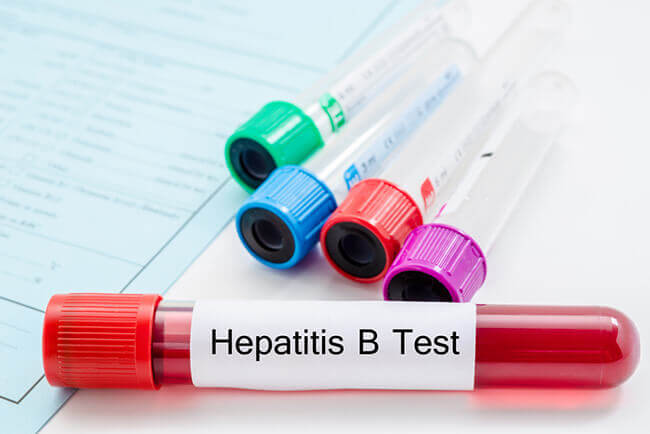Hepatitis B is a highly contagious liver disease caused by the hepatitis B virus (HBV). The infection can be either acute or chronic and many individuals exhibit no symptoms during the initial stages of the disease. Some people, however, may develop rapid outbreaks of tiredness, vomiting, abdominal pain, dark urine, and yellowish skin. These symptoms usually occur 30-180 days after the initial infection and last for a couple of weeks.
What is truly terrifying about this disease is that 90% of children who get infected around the time of birth will develop chronic hepatitis B and most likely exhibit no symptoms whatsoever. Apart from the mother-to-baby transfer, hepatitis B can also be transmitted through contact with infected blood and other bodily fluids, contaminated needles, vaginal, oral, and anal sex, etc. Although saliva can contain the virus, the infection cannot be spread through kissing, sharing utensils, coughing, sneezing, and breastfeeding.

Testing Solutions For Hepatitis B
Hepatitis B is diagnosed with a physical exam and blood test. There are several testing solutions available, including:
- Hepatitis B surface antigen – This test detects antigens created by the virus, which are the earliest signs of an active hep B infection. Antigens can be present even before any symptoms occur.
- Hepatitis B surface antibody – Your immune system will create antibodies to fight off the infection and this test is designed to detect them. The presence of these antibodies signifies the end of the active stage of the infection and that you are no longer contagious. At this point, you won’t be able to pass the virus to others.
- Hepatitis B e-antigen – This antigen can only be detected while the infection is active.
- Hepatitis B DNA testing – This test is designed to detect the DNA material of the virus. A high concentration of viral DNA indicates the virus is multiplying in your body and means you’re very contagious.

There are also some other testing solutions that are not performed as often:
- Hepatitis B core antibody – This antibody can be detected approximately one month after your infection becomes active. It can be found in individuals with chronic or long-term hepatitis B or those who had this infection in the past.
- Hepatitis B core antibody IgM – The presence of this antibody will indicate that your hepatitis B infection started within the last 6 months. It could also mean your chronic infection flared up again.
- Hepatitis B e-antibody – This antibody indicates that the active stage of your infection is almost over, so the risk of you spreading the virus around is a lot lower at this point.
- Hepatitis B antibody – This test is performed very sparingly and it shows whether you are also infected with the hep D virus. This infection can only occur if you already contracted hep B, but it’s very rare in the US and Canada. Its probability rises, however, among individuals who are often exposed to blood products or inject illegal drugs.
The vaccine for hepatitis B was first introduced in 1982 and vaccination is highly recommended by the World Health Organization. Preferably, children should be vaccinated during the very first days of their lives. 2-3 more doses will be required at a later time in order to achieve full immunity. The vaccine works around 95% of the time.
